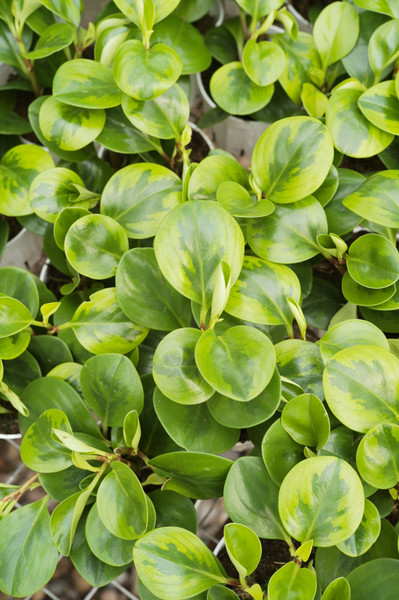2025 Garden Calendar
Posted by Jessie Jacobson on Jun 4th 2025
June Garden Calendar
Our quest this year is to educate and entertain you while providing the best plant inspired experiences EVER! Each month, look forward to the release of our beautifully illustrated garden calendar - your guide to what to do when in the garden (both inside and out)!
This month's theme "National Pollinator Month". Read on!
Perennial Care
Proper perennial care is essential for maintaining a healthy, vibrant, and long-lasting garden. Perennials return year after year, but they require regular attention to thrive—this includes watering, mulching, dividing, deadheading, and monitoring for pests and diseases. Consistent care encourages stronger root systems, more abundant blooms, and overall plant longevity.
Amend newly planted perennials
Amending newly planted perennials with Biotone helps establish strong root systems and promotes healthy, vigorous growth. Biotone is a starter fertilizer that contains beneficial microbes, mycorrhizae, and essential nutrients designed to reduce transplant shock and enhance nutrient uptake.
Plant native plants
Planting native plants is a sustainable and eco-friendly gardening practice that supports local ecosystems and biodiversity. Native plants are naturally adapted to the region’s climate, soil, and wildlife, making them easier to maintain and more resilient to pests, diseases, and drought.
Refer to our perennial library for resources
Refer to Tonkadale’s Perennial Library for valuable resources and expert guidance on selecting, planting, and caring for perennials. This comprehensive online tool offers detailed plant profiles, including sunlight and soil requirements, bloom times, growth habits, and maintenance tips.
General Care & Maintenance
Weed regularly
Weeding regularly is a crucial part of maintaining a healthy and attractive garden. Weeds compete with perennials and other desirable plants for sunlight, water, and nutrients, often leading to reduced growth and vigor. By removing weeds consistently, especially before they flower and go to seed, gardeners can prevent them from spreading and becoming more difficult to control.
Deadhead spent blooms
Deadheading spent blooms is an important gardening practice that encourages continued flowering and keeps perennial plants looking neat and vibrant. By removing faded or wilted flowers, the plant can redirect its energy from seed production back into root development and new blooms.
Stake or cage tall plants
Staking or caging tall plants is an essential practice to support their growth and prevent damage from wind, rain, or the weight of their own blooms. Many tall perennials, such as delphiniums, peonies, or hollyhocks, can become top-heavy or floppy as they mature.
Water deeply
Unlike shallow, frequent watering, deep watering ensures that moisture penetrates well into the soil, encouraging roots to grow downward rather than staying near the surface. This results in healthier, more drought-tolerant plants that are better able to access nutrients and withstand environmental stress.
Pollinator & Wildlife Support
Avoid using pesticides
Avoiding the use of pesticides on plants supports a healthier, more balanced garden ecosystem. By choosing organic or integrated pest management methods—such as encouraging natural predators, using physical barriers, or selecting pest-resistant plants—gardeners can manage problems sustainably.
Add a water source to your garden
Adding a water source to your garden, such as a birdbath, small pond, or shallow dish, enhances the overall health and biodiversity of your outdoor space. Water attracts a variety of beneficial wildlife, including birds, pollinators, and amphibians, which help with pest control and pollination.
Install shelters for pollinators
Shelters provide safe places for solitary bees, butterflies, and other beneficial insects to rest, nest, and overwinter, helping to increase their populations in your area. By offering a variety of habitats, you encourage greater biodiversity and improve pollination rates, which leads to healthier plants and more abundant blooms and fruits.
Plant pollinator-friendly blooms
These plants offer abundant nectar and pollen, providing critical food sources that sustain pollinator populations throughout the growing season. Choosing a diverse mix of native and well-adapted flowers that bloom at different times ensures a continuous supply of resources, helping pollinators thrive year-round.
Boost Your Edible Garden
Boost your vegetable gardens
Boosting your vegetable garden with compost and Garden-tone fertilizer provides a powerful combination of organic nutrients that promote vigorous plant growth and bountiful harvests. Compost enriches the soil by improving its structure, moisture retention, and microbial activity, creating an ideal environment for healthy root development.
Supplement Tomatoes
Using Tomato-tone at recommended intervals helps prevent common nutrient deficiencies and supports the plants throughout their growing cycle—from early development to harvest. This targeted feeding ensures your tomato plants remain vigorous, productive, and better equipped to withstand stress, resulting in a more bountiful and flavorful harvest.
Keep an eye out for common pests
Early detection allows you to address issues before they become severe, reducing the need for harsh treatments. Regularly inspecting leaves, stems, and soil for signs of pests such as aphids, caterpillars, or beetles helps you identify infestations early. Understanding the types of pests common to your area and their typical behaviors enables you to choose appropriate, environmentally friendly control methods.
Always approachable and happy to help!

